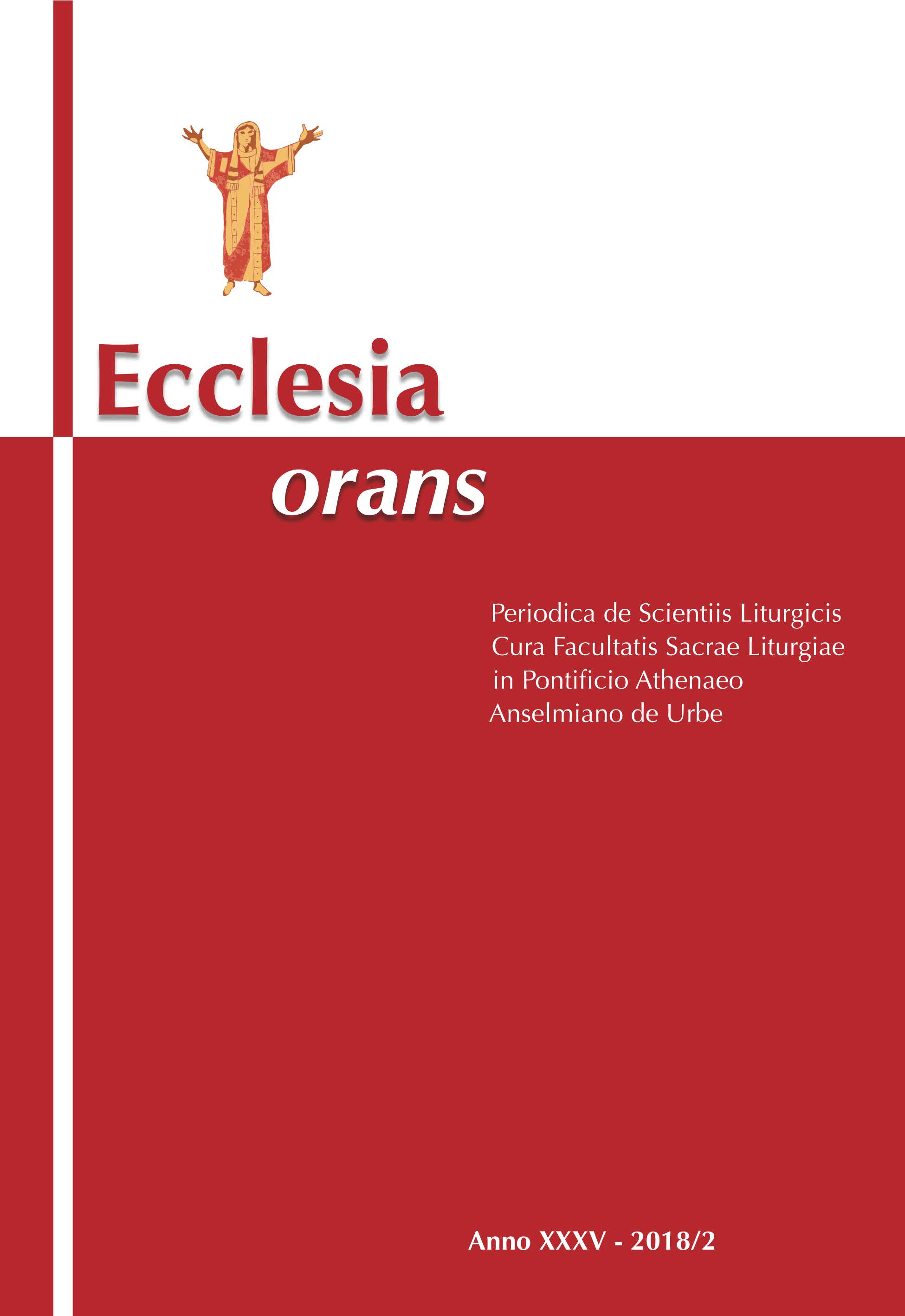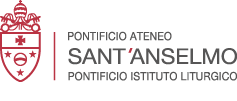Adnotationes
With this second volume of 2018 we close a chapter in the life of our scientific review which began in 2012 with the appointment of the director and vice-director, now moving on. Different objectives were achieved in these years; we wish to recall only some of them.
The principal effort was that of guaranteeing and, where possible, augmenting, the scientific contribution which the review has brought to academia and to theological research in particular. Thanks go to all those who contributed with their research and their publications making Ecclesia orans an instrument of reflection, renewal and enrichment for liturgical science. That was indeed possible thanks also to the work of many experts and researchers who, in collaborating with the editorial office, made themselves available for the peer review of articles in order to guarantee a scientific seriousness of the review at all times. The total number of articles carried in these six years was 83 (68 articles and 15 notes) written in different languages: 28 in Italian, 21 in English, 18 in French, 13 in Spanish, two in German, and one in Portuguese. There were also 99 book reviews.
The nomination of a scientific committee, previously inexistent, continuously consulted and which accompanied the editorial board in the work of selecting and evaluating contributions, was indispensable in maintaining the high scientific quality of Ecclesia orans.
The high regard the review enjoys in academia, other than the increasing number of subscriptions and various explicit manifestations of esteem, found its highest expression when, in 2015, the National Agency for the Evaluation of Universities and Research Institutes recognised the scientific nature of Ecclesia orans, listing it among the “Class A” reviews within Area 11 dedicated to “historical, philosophical, pedagogical and psychological sciences”, Sector A4: “Sciences of books and documents and historical-religious sciences”. The motivation for the recognition of the journal was formulated thus: “due to the high specialisation and great renown of Ecclesia orans in the field of scientific liturgical studies on the international platform”.
The review was inscribed in “class A” by the evaluation agency ERIH PLUS in the category of Religious Studies and Theology, thus acquiring recognition and visibility at the international level. To this also contributed the presence of the review on the ATLA platform (American Theological Library Association) and in the main social networks.
In 2016, with various requests from authors to publish their research in our review, it was decided to initiate a new series, now called Ecclesia orans. Ricerche, which has now reached its fourth volume, but with a new name: Ecclesia orans. Studi e ricerche. The series, in close relationship with the review, is an extension of the latter, containing rather vast and theological profound contributions.
We leave this legacy to the new scientific director, Prof. Dr. Markus Tymister, to his close collaborators, professors Dominik Jurczak and Francesco Bonomo, and to the secretary Dr. Giulia Fioravanti, wishing that the “little baby”, as the review’s first director Prof. Adrien Nocent called it, now of course an adult, may continue to grow and become a sure point of reference for scientific liturgical studies.
Activities of the PIL and of the Editorial Office
The Series Ecclesia orans – Ricerche
The Series “Ecclesia orans – Ricerche” saw the publication in 2018 of a new book by Prof. Juan Pablo Rubio Sadia, La transición al Rito romano en Aragón y Navarra. Fuentes, escenarios, tradiciones. The tome was published by Editrice Domenicana Italiana and is available in specialised bookstores, as well as on the publisher’s website as an ebook (www.edi.na.it).
Study Day for the 55th anniversary of Sacrosanctum concilium
As occurs each year for the anniversary of the promulgation of the Constitution on the Liturgy Sacrasanctum concilium, will be held on the 5th of December 2018 a Study Day dedicated to the theme “with zeal and patience, pastors of souls must promote the liturgical formation […] (SC 19)”.
In memoriam
This past 2nd November we received news of the death of Prof. Robert Taft, former teacher of Oriental languages and liturgies at the Pontifical Institute of Oriental Studies. He collaborated in different ways with our Athenaeum. The next issue of the review will leave ample space for commemorating him and his contribution to liturgical studies.
PIETRO ANGELO MURONI
Editor
OLIVIER-MARIE SARR
Assistant Editor


